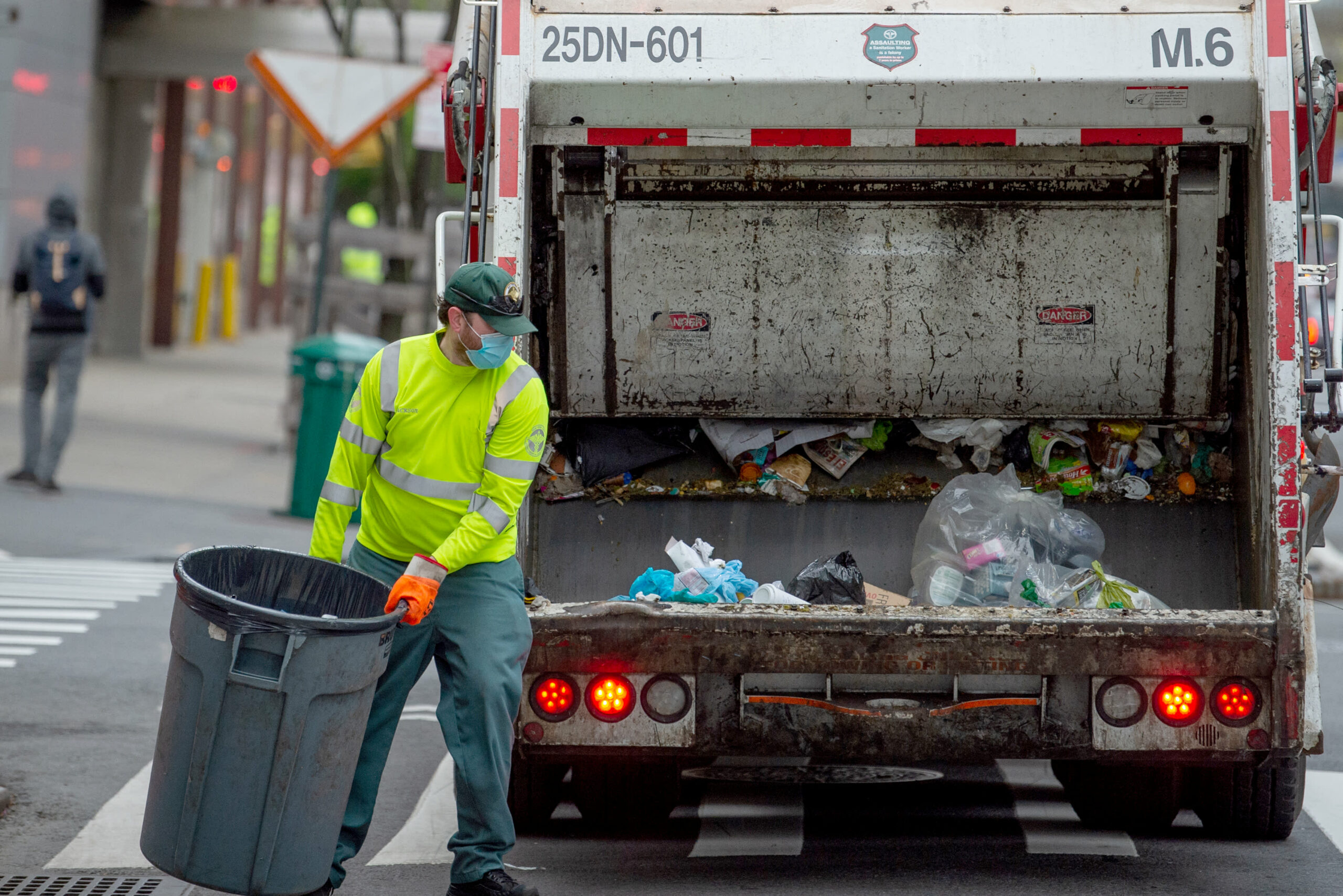You might be excused for assuming that demand for all high-paying positions is absurdly high and that several applicants are vying for a small number of available positions.
Many well-paying occupations aren’t very appealing for a variety of reasons, such as being exceedingly risky or filthy.
Although most individuals choose to work in well-paying, respectable occupations, you may still earn the same amount of money or even more by choosing some “unattractive” careers.
The high-paying occupations that nobody wants to undertake are highlighted here, along with the reasons why.
1. Crime Scene Cleaner
When the required investigation is finished, crime scene cleaners are entrusted with the unpleasant and revolting chore of cleaning up the crime scene. Cleaning up after the event and removing many other objects that were strewn over the area is a chore that nobody likes to do.
Depending on the number of casualties and the method used to find the body, cleaning up will take a certain number of hours. It might be anywhere between five hours and a few days.
Moreover, keep in mind that this work is not appropriate for those who are quickly alarmed, queasy, or depressed after viewing something so horrific. It can also result in post-traumatic stress disorder or clinical depression.
2. Sanitation Worker
Few kids grow up wanting to work in the sanitation industry. It’s dishonorable work with a lot of overtime and minimal compensation. Yet, sanitation workers may make a respectable livelihood if they’re ready to get their hands filthy. Employees at the top of the pay bracket may make up to $50,000 a year. Although the task is undoubtedly not glamorous, it is necessary for any community to function.
Workers in the sanitation industry contribute to the safety and cleanliness of our communities. They are crucial in preserving the ecosystem, as well. Recycling waste materials that would otherwise go to landfills helps us use less fossil fuel and has less of an impact on the environment.
3. Portable toilet cleaner
If you’ve ever attended an outdoor concert or any event that required the use of portable toilets, you know firsthand how uncomfortable they can be and how they are sometimes the last option.
Cleaning portable toilets are a very unpleasant chore due to the poor general cleanliness and offensive odor, especially after they have been used hundreds of times in a short period of time.
Due to the lack of a mechanism for disposing of human waste, portable toilets must be physically cleaned from top to bottom and thoroughly disinfected before being used again.
4. Embalmer
The deceased’s body must be readied for viewing before loved ones may bid farewell at a funeral. Embalmers are responsible for doing this task.
The majority of people would rather not consider the procedures required to prepare a deceased person for a funeral, such as gluing their eyelids shut and injecting embalming fluid into their arteries.
The unemployment rate in the embalming sector is 0.2%. With individuals passing away every day, this rich vocation that no one wants will never go out of trend.
An associate’s or bachelor’s degree in mortuary science, ideally from a school recognized by the American Board of Funeral Service Education, is required to work as an embalmer.
5. Slaughterhouses Worker
It is a difficult job for those who work at slaughterhouses to kill animals for sustenance. Although formal education is not required for the position, it does call for a robust constitution and thick skin. The employees must distinguish between the edible and inedible animal components. They also use a variety of techniques to kill the animals.
Animal corpses are hung up when they pass away so that they might be drained out. Before transporting the meat to grocery stores, the employees remove the organs and other internal body parts. Even though the work pays rather well, not everyone will enjoy it.
6. Sewage inspector
Sewage inspectors examine and spot obstructions, fissures, and leaks in subterranean sewer systems, as the name already indicates. To locate the issue and find a suitable remedy, they may have to swim through human waste and other trash.
This profession is not at all appealing given the hours of exposure to human excrement alone, much alone other offensive waste materials. Inadequate protection measures might result in asphyxiation and respiratory issues from prolonged exposure.
As if that weren’t bad enough, some sewage inspectors have mentioned coming across animal and human carcasses while doing their duties of cleaning or repairing the sewer lines.
7. Coal Miner
Working in a coal mine involves a variety of dangerous situations. During their employment, these individuals are exposed to a variety of gaseous and chemical risks, which can cause serious health issues.
A coal miner does not have the most enviable workplace. In an underground mine, it is often dim, filthy, and uncomfortable. Physical fitness, strong strength, endurance, and dexterity are required for a coal miner.
To become a coal miner, you must have a high school graduation or GED, have finished an apprenticeship program, and have undergone specialized training.
8. Medical Tester
Before making novel medications and mixes available to the general public, pharmaceutical firms test them on human beings in clinical trials. Clinical trials are crucial for the creation of new medicines since they assist to ensure their efficacy and safety. Although clinical trials may earn up to $40,000 annually, many people think the work is too risky because the tested pharmaceuticals have not yet received FDA approval.
Because there is a small chance that a clinical study would result in death, many people elect not to take part in these trials. Clinical trials, despite the hazards, are crucial to the creation of new medicines and can enhance the lives of patients with a range of medical illnesses.
9. Urine farmer
A further well-paying position that nobody wants is that of a farmer of urine. Animal pee is collected by urine farmers to help make hunting lures.
For instance, farmers of white-tailed deer gather the animals’ urine. Because the undiluted pee contains pheromones that draw bucks, it is simpler to hunt them by utilizing urine as bait.
Deer are kept in special chambers with holes in the floor where pee is collected by urine farmers. The perforations will allow the pee to drop into storage containers. Following collection, the urine will be packed, chilled, and transported for sale.
10. Garbage Collector
Trash collectors spend long shifts collecting rubbish from every corner of the road while avoiding collisions with oncoming cars.
The majority of sanitation employees are accustomed to the smell of garbage that includes rotting food and may also contain dirty diapers and rotten eggs.
However, they must operate throughout the year, come rain, shine, or snow, as rubbish buildup may serve as a breeding ground for dangerous diseases and viruses.
For the majority of positions, applicants must have a high school graduation and complete an on-the-job training program with an experienced worker to learn the fundamentals.
11. Oil Rig Worker
It seems to sense that one of the highest-paying careers that nobody wants is an oil rig worker given the physically demanding and hazardous nature of the work, as well as the extended times spent away from home. Workers work 12-hour shifts cleaning pipelines or using rotary drill rigs, all while donning constrictive safety equipment that may make even the simplest duties challenging.
The working environment is noisy and, if sufficient safety measures are not implemented, might result in an irreversible hearing or visual damage.
12. Head lice technician
Can you picture yourself pursuing a job that entails clearing people’s heads of lice? I must admit that while it isn’t a fancy profession, it does pay well considering my little education.
Head lice specialists inspect people’s heads for lice, treat them naturally if necessary, and instruct their customers on how to keep their hair and heads free of lice.
The average yearly wage for lice technicians is $43,271, while the highest-paid individuals make over $68,000.
13. Exterminator
Despite the fact that people should avoid any creepy crawlies, exterminators go right into the issue.
Exterminators, or qualified pest control specialists, search residential and commercial buildings for indications of pest infestations and deal with them if they are discovered. They work with a variety of animals, including rats, termites, cockroaches, and hornets.
The Bureau of Labor Statistics forecasts exponential growth in the field during the following ten years.
A high school diploma or GED is the minimum educational requirement. Yet, the licensing criteria for pest control professionals differ from state to state.




